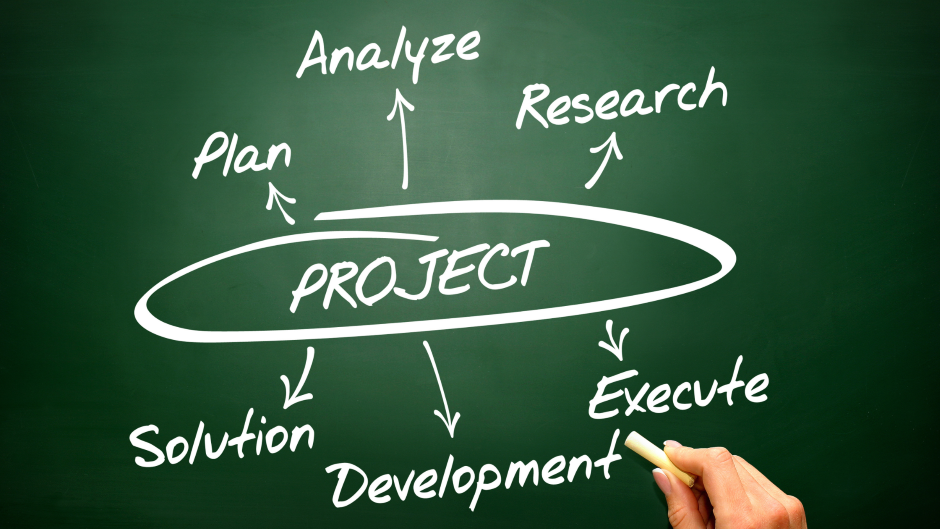
Almost half of the organisations are shuffling and restructuring in response to volatile market conditions as highlighted by the CIPD. This large shift in resources shows that businesses are opting for more flexible resource solutions such as freelancers and agency partners to reduce the overall cost with additional plans to automate processes to further drive down the overhead.
For agencies, this presents a unique set of challenges. We’re not only faced with increasing competition and client pressure, but also the need to innovate and offer more than just traditional services. By exploring key strategies in this blog, you will see how agencies can thrive in this climate, adjust their resource models, and maintain a competitive edge while adding value to their clients.
The Impact of an Uncertain Economy
There are several different factors contributing to an uncertain and unstable economy. Economic challenges, including global trade disruptions and the widespread impact of inflation, are transforming industries and forcing agencies to rethink how they do business.
These factors are eroding confidence across markets, creating uncertainty that affects both individuals and businesses alike.
In today’s interconnected world, the effects of these shifts are far-reaching. Agencies must adapt to these changes by rethinking their strategies and operations.
We’ve identified the key challenges agencies face, breaking them down into specific areas that require strategic leadership and adaptability to stay competitive.
- Economic Volatility: The loss of confidence in the global economy has had effects on overall client demands and destabilising revenue streams. Potential roadblocks for agencies may include project delays and cancellations, reducing the overall cash flow with further consequences such as complicating long-term plans and budget allocations. This forces agencies to work under major constraints and potentially affects the workflow of projects.
- Increased Competition: The new economic changes have also forced businesses to adopt a more cost-focused view, as priorities shift from workmanship to lower-cost agencies, the market will then shift to more cost-cutting measures. This also affects talent retention as professionals may seek more stable opportunities during economic.
- Budget Constraints: The reduced spending highlighted in the previous point applies to both agencies and their clients, forcing businesses to scale back marketing budgets, which will impact the marketing sector. This limits an agency’s ability to invest into the growth of the businesses, forcing agencies to find ways to reduce the overall costs to adapt to the reduced perceived market value.
Solutions to Navigate These Issues
The path forward requires agencies to rethink traditional approaches and embrace solutions that enhance efficiency and ensure long-term sustainability. As the market continues to evolve, agencies have an incredible opportunity to innovate and optimise how they operate. The key is to remain open to new ways of working while staying grounded in what drives long-term success.
Here are three main strategies that agencies can implement to navigate these economic challenges and maintain a competitive edge.
Strategy #1: Flexible Resourcing
A strategy to consider is introducing flexible resourcing, where agencies utilise freelancers and agency partners to reduce overhead costs compared to full-time employees. This allows agencies to pay their employees on a project-by-project basis, allowing for more flexible and scalable manpower while reducing overall costs.
The following are steps to take to implement Resource Flexibility:
- Identifying the Core Roles: Determine which roles and skills are essential and which can be This is to ensure that the overall day-to-day process of the agency can run smoothly while employing freelancers.
- Build a Talent Network: Develop strong relationships with reliable freelancers and agency This includes utilising platforms such as UpWork to build a reliable reputation so that the agency is more visible to freelancers.
- Integrate Hybrid Teams: The integration of hybrid teams ensures that the freelancers and core team can work together without This helps ensure that workflows are not disrupted and are seamless throughout.
Strategy #2: Leveraging AI for Automation
AI is transforming how we work. It’s now capable of handling tasks that used to take up valuable time, like automating repetitive processes and providing real-time insights. It allows teams to focus on the creative and strategic work that really matters.
The following are steps to take to implement AI tools into your workflow:
- Identifying Repetitive Tasks: Automation is best applied to simple and repetitive Identifying these is important. This will free up more resources as AI tools can automate them without human input.
- Adopt AI for Projects: Utilising AI agents such as Copilot and ChatGPT for strategic market planning can assist in reducing the time required for specific projects.
- Leveraging AI Tools for Project Analytics: AI tools have also expanded to project management. It allows project managers to identify bottlenecks or issues in This gives the managers time to mitigate and allocate resources to circumvent the issues.
These steps highlight the potential for the integration of AI tools to automate tasks and reduce overall cost by allowing for better resource allocation for agencies. A study by Bain & Company found that companies investing at least 20% of their IT budgets in automation have reduced process costs by 17%.
Strategy #3: Evaluation of Current Strategies
Agencies simply cannot afford to set a strategy and forget about it. They have to continually evaluate their approach to stay aligned with both market changes and internal growth. Taking the time to assess what’s working and what’s not allows agencies to refine their processes and create more efficient workflows. It also provides an opportunity to pivot, embrace new tools, or streamline operations in response to evolving economic pressures.
Here are a few ways to evaluate where your business stands:
- Conduct Regular Performance Reviews: Analysing project outcomes as well as resource allocation allows for the gathering of data that can identify potential inefficiencies and areas for Scheduling these reviews allows for a better view of the overall structure of the agency.
- Benchmarking Against Competition: Measuring the agency’s performance against similar industry competitors helps determine where improvements can be This can be done as an overall view or a study of their publicly available information.
- SolicitTeam Feedback: Constant involvement of the employees and external partners to provide insight can assist in creating better strategies, as they can reveal potential issues with existing strategies or identify potential improvements.
Your next steps
We are a premium white label agency that can help in creating strategies to better assist your business.
Our experience shows that integrating these technologies into our processes not only improves efficiency but also enhances the overall collaboration experience for everyone involved.
We’d love to hear your thoughts! Share this post with your network or subscribe to our newsletter for more insights on tackling collaboration challenges in your agency.
Related Articles
Why Choose Us?
With decades of experience and a dedicated team, we are committed to delivering high-quality web development services. Our client-centric approach ensures that we understand your needs and provide solutions that exceed your expectations.








